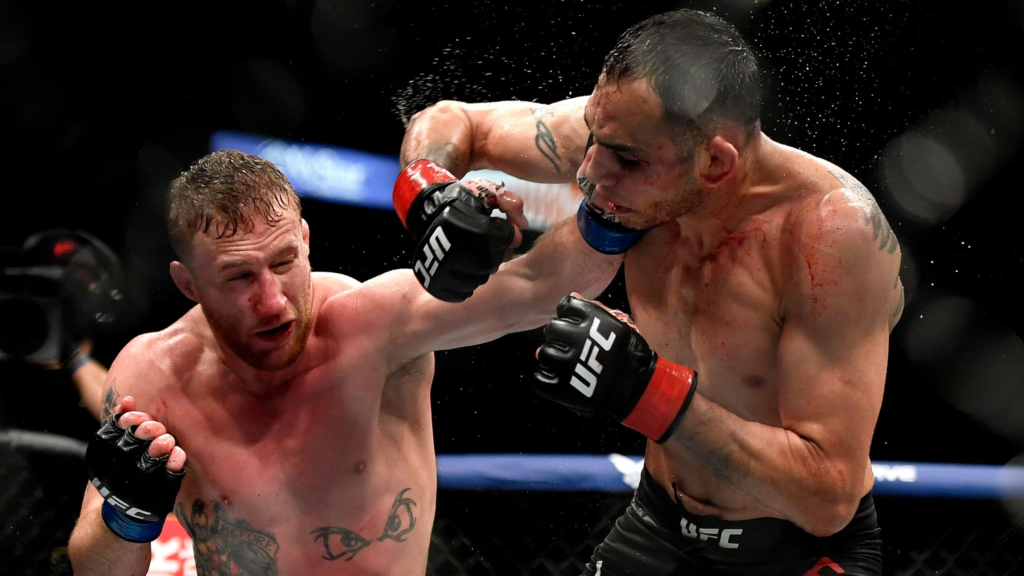
The Ultimate Fighting Championship (UFC) has become a global phenomenon, synonymous with mixed martial arts (MMA). But the path to this success wasn’t always smooth sailing. From its controversial beginnings to its current status as a multi-billion dollar enterprise, the ownership of the UFC has played a significant role in its evolution.
This article will delve into the history of UFC ownership, addressing the burning questions fans and curious minds often ask.
The Early Days: Seeding the MMA Revolution (1993-2001)

The UFC’s story begins in 1993 with Rorion Gracie, a Brazilian Jiu-Jitsu legend, and his business partner Art Davie. Their vision was a no-holds-barred competition showcasing different martial arts styles. The first UFC event, held in Denver, Colorado, was a raw and brutal affair. Fighters from various disciplines competed with minimal rules, leaving viewers both shocked and intrigued.
While the initial concept attracted controversy, it also garnered a dedicated following. However, the lack of regulations and safety measures drew criticism from governments and athletic commissions. This ultimately led to several states banning the UFC.
Ownership during this period was fluid. Gracie and Davie held the reins initially, but financial difficulties and legal issues forced them to sell the UFC to SEG (Semac Entertainment Group) in 1995. SEG, under the leadership of Campbell McLaren, attempted to make the UFC more palatable to mainstream audiences by implementing some basic rules. However, financial troubles continued to plague the organization.
A New Era Dawns: Zuffa Takes the Reins (2001-2016)

In 2001, the UFC found new hope in a consortium led by casino executives Frank and Lorenzo Fertitta alongside Dana White, a promoter with a background in boxing. This group, known as Zuffa LLC, acquired the UFC for a mere $2 million. At the time, the UFC was on the brink of collapse, with several states still outlawing the sport.
The Fertitta brothers and White ushered in a new era for the UFC. They recognized the potential of MMA but understood the need for significant changes. Zuffa implemented a unified rule set, focusing on fighter safety and sportsmanship. They also invested heavily in improved production quality, better marketing, and establishing relationships with athletic commissions.
These efforts proved pivotal. States gradually began sanctioning Ultimate Fighting Championship events, and the organization’s popularity grew exponentially. The Fertitta era saw the rise of iconic UFC stars like Tito Ortiz, Chuck Liddell, and the legendary Anderson Silva. Pay-per-view sales boomed, and the Ultimate Fighting Championship secured lucrative television deals.
A Landmark Acquisition: Endeavor Steps into the Octagon (2016-Present)
By 2016, the UFC had become a global powerhouse. Recognizing its immense value, a consortium led by entertainment and sports giant Endeavor, alongside investment firms Silver Lake Partners and KKR, acquired the UFC for a staggering $4 billion. This deal marked the largest acquisition of a sports property at the time.
Endeavour’s ownership has seen the Ultimate Fighting Championship continue its growth trajectory. The company has further expanded its global reach, securing lucrative broadcast deals internationally. They’ve also focused on developing new revenue streams, such as the Ultimate Fighting Championship Fight Pass streaming service and lucrative sponsorship deals. Endeavour’s financial backing has allowed the UFC to attract top-tier talent, further elevating the level of competition within the organization.
Who Runs the UFC Day-to-Day?
While Endeavor holds a majority stake in the Ultimate Fighting Championship, it’s important to distinguish ownership from day-to-day operations. Dana White, who joined the UFC with Zuffa’s acquisition, remains the President of the organization. He is the public face of the UFC, overseeing fight cards, handling media relations, and playing a key role in fighter recruitment and contracts.
The Future of UFC Ownership: Continued Expansion and Diversification
Endeavour’s ownership seems to be a successful formula for the Ultimate Fighting Championship. The company’s vast resources and experience in the entertainment industry have propelled the Ultimate Fighting Championship to even greater heights. Looking ahead, Endeavor is likely to focus on further global expansion, potentially entering new markets in Asia and Africa. They may also explore strategic partnerships and acquisitions to diversify the UFC’s offerings and revenue streams.
The world of MMA is constantly evolving, and the Ultimate Fighting Championship remains at the forefront. Endeavour’s ownership provides the stability and resources needed for the organization to continue innovating and captivating audiences worldwide. Whether through groundbreaking fighter matchups, technological advancements in broadcasting, or venturing into new ventures, the future of the Ultimate Fighting Championship under Endeavor’s leadership promises
FAQs
Q. Who owns the UFC right now?
The UFC is currently owned and operated by Endeavor Group Holdings, a global entertainment and sports conglomerate. Endeavour acquired a majority stake in the UFC in 2016, along with investment firms Silver Lake Partners and KKR. This deal valued the UFC at a whopping $4 billion.
Q. Did Dana White ever own the UFC?
While Dana White is the well-known face of the Ultimate Fighting Championship as its President and CEO, he doesn’t own the company. He plays a crucial role in running the organization but doesn’t hold majority ownership.
Q. Who founded the UFC?
The Ultimate Fighting Championship was founded in 1993 by Rorion Gracie, Art Davie, John Milius, and Bob Meyrowitz. Back then, it was a single-elimination tournament showcasing different fighting styles.
Q. How much did the UFC sell for?
The UFC’s acquisition by Endeavor in 2016 was a landmark deal. The final price tag was a staggering $4 billion, reflecting the immense growth and popularity of the organization.
Q. Is the UFC publicly traded?
No, the Ultimate Fighting Championship is not a publicly traded Company. Endeavour, its owner, is a private company, meaning its shares are not traded on stock exchanges.
To read more, Click here